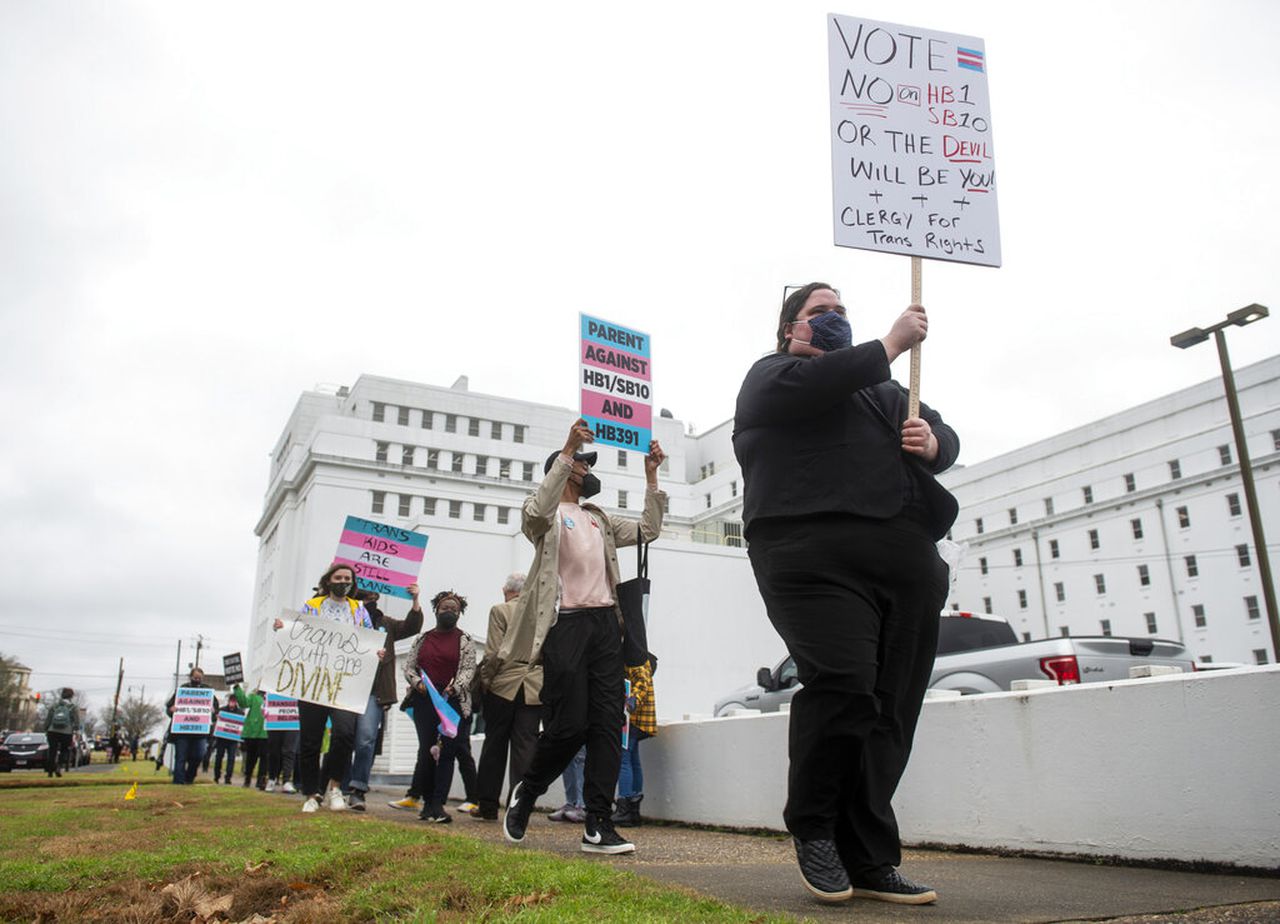Alabama asks for children’s medical records in trans health care lawsuit
Alabama officials arguing for the state’s ban on gender-affirming care for minors have asked a judge to compel plaintiffs to turn over LGBTQ children’s medical records.
Boe v. Marshall is brought by five parents who argue a 2022 state law strips them of the right to make important decisions about their children’s healthcare. The Vulnerable Child Compassion and Protection Act (SB184), which was signed into law by Gov. Kay Ivey, bans puberty blockers, hormone therapy and gender-affirming surgeries for minors. The law punishes not only doctors, but also “any other individual” who “prescribes or administers” the treatments with a felony conviction and up to 10 years in jail.
Last year, a district court judge blocked parts of the law from taking effect; state officials appealed that decision up to the 11th Circuit Court of Appeals. In the meantime, some aspects of the original lawsuit are still being considered by U.S. District Judge Liles Burke.
Read more: 11th Circuit considers pause on Alabama youth transgender treatment.
Defendants, including Alabama Attorney General Steve Marshall, argue that since parents and other plaintiffs believe hormone therapy and puberty blockers are medically necessary, they should provide their own children’s medical records.
“After bringing an action premised on “obtaining appropriate” and “essential” “medical care for” the Minor Plaintiffs, Plaintiffs refuse to turn over the medical records necessary to assess their claims,” lawyers for the defendants said, calling the information “highly relevant.”
Defendants in the case, including Alabama Attorney General Steve Marshall, are asking the parents of transgender youth to produce the following records, according to a motion filed Thursday:
- All medical records in your possession of any child of yours which relates to treatment for Gender Dysphoria or a Related Condition.
- All Documents in your possession of any mental health treatment provided to a child of yours who has been treated for Gender Dysphoria or a Related Condition.
- All Documents between you and any medical provider or mental health professional who has treated a child of yours for Gender Dysphoria or a Related Condition.
- All calendars, notes, or other Documents, reflecting the dates of any treatment of a child of yours for Gender Dysphoria or a Related Condition.
- All forms, disclosures, or other Documents provided to you by any Health Care Provider or mental health provider who has treated a child of yours for Gender Dysphoria or a Related Condition.
The plaintiffs have responded that such records are protected and confidential medical information. They also argue that, under the new law, evidence that such treatments have been offered in the state could possibly lead to criminal charges.
Over 20 medical organizations have filed briefs in support of the plaintiffs claims that the treatments are essential medical care, including the American Academy of Pediatrics and the American Academy of Child and Adolescent Psychiatry.
Puberty blockers and hormone therapy are considered safe and effective “evidence-based care” for children and adults, in appropriate situations, according to the American Academy of Pediatrics. Gender-affirming surgeries for minors were not performed in Alabama prior to the passage of the law.
The judge has yet to rule on the request to turn over records. The next hearing in the case is scheduled for Feb. 8.
